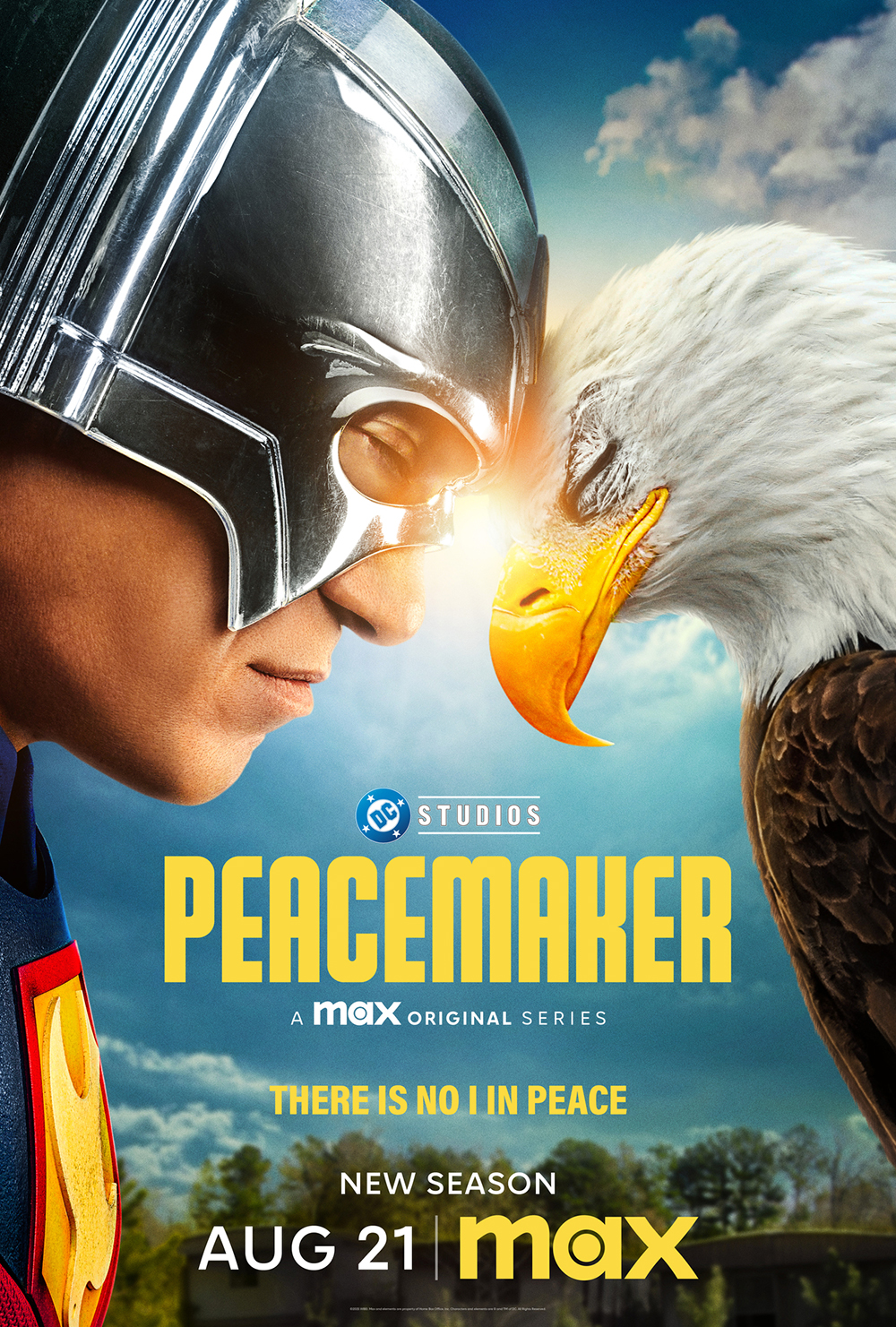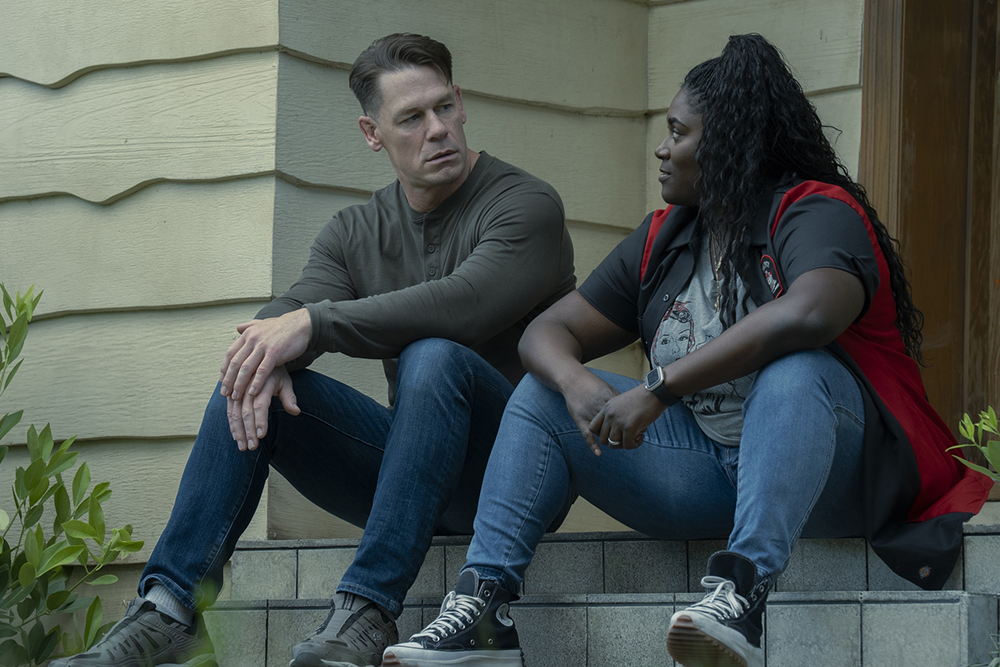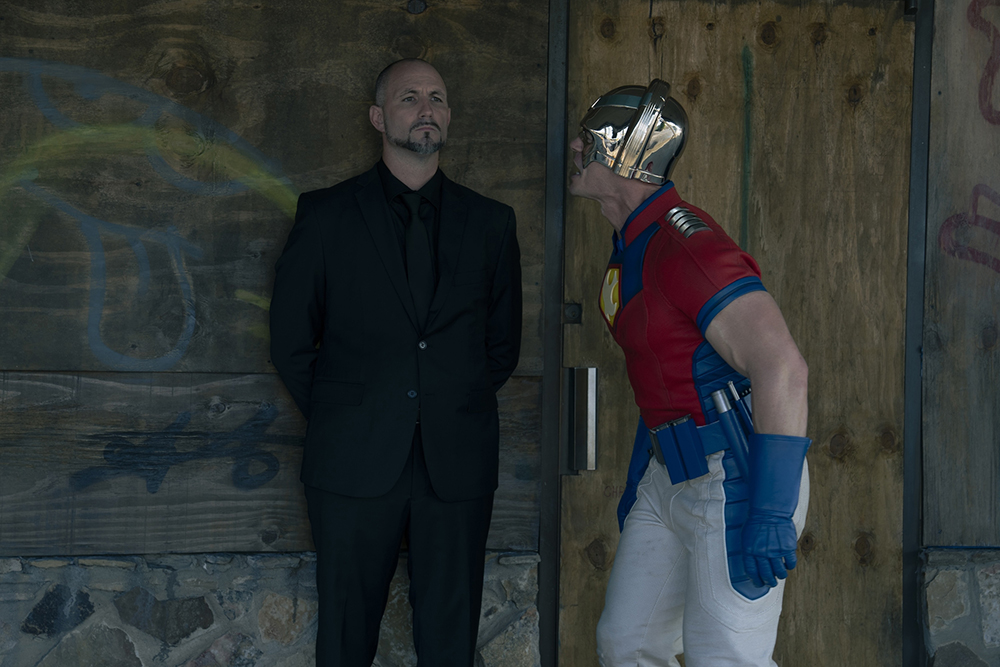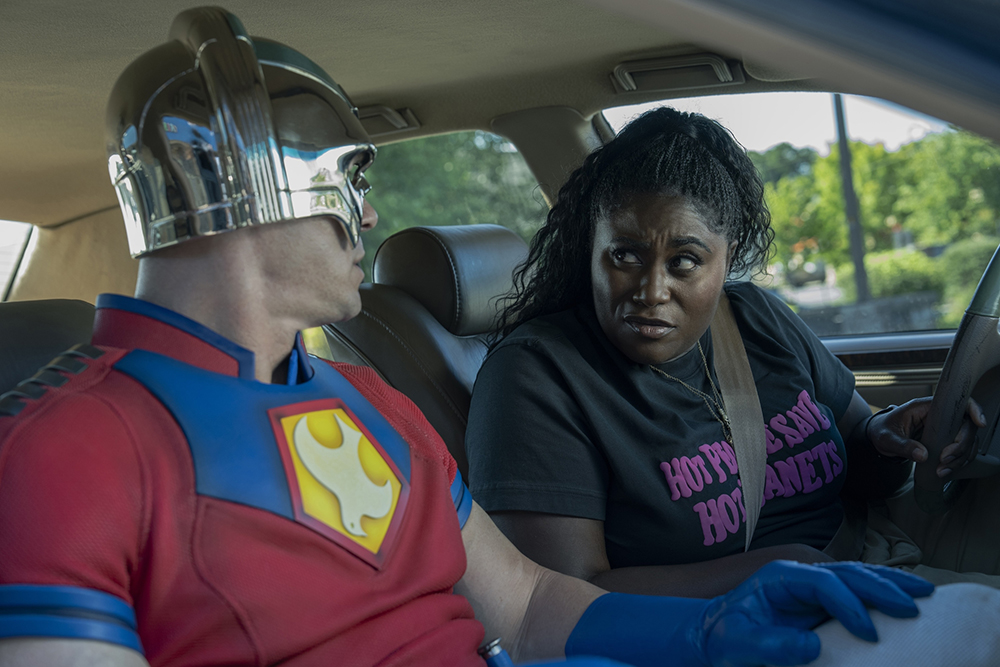HBO max - Peacemaker Season 2: A Wild Ride Through Guilt, Multiverses, and Unlikely Humanity
By Mulder, 22 august 2025

At a time when superhero fatigue seems to dominate conversations around popular culture, James Gunn has once again found a way to turn expectations upside down with Peacemaker Season 2. What could have easily been a throwaway spin-off of The Suicide Squad has instead matured into one of the defining cornerstones of the DCU, a series that feels equally anarchic and heartfelt. While the first season thrived on irreverence, outrageous violence, and a willingness to shock its audience, the second season digs much deeper, exposing the fragile humanity behind Christopher Smith, the man beneath the silver helmet. John Cena, who once seemed an unlikely actor to carry such a layered role, delivers the most nuanced performance of his career here. His Peacemaker remains crude, boastful, and painfully awkward, but he is also bruised, vulnerable, and wracked with guilt. The juxtaposition between the cartoonish violence of Gunn’s universe and the emotional sincerity with which Chris struggles to define himself is what makes this new chapter stand out as more than just another superhero offering.
From its opening moments, Season 2 embraces its position as part of the broader DCU, weaving threads from Superman and other projects into its narrative. Yet instead of drowning in endless continuity, Gunn cleverly uses this integration to heighten the story’s central theme of longing for redemption in a world unwilling to grant it. The discovery of a dimensional portal hidden inside Chris’s late father’s home becomes the season’s narrative anchor. Beyond that doorway lies a reality where Auggie Smith, once a vicious white supremacist embodied chillingly by Robert Patrick, is alive, loving, and progressive; where Peacemaker is celebrated as a genuine hero; and where Emilia Harcourt, played with intensity and depth by Jennifer Holland, embraces the romance that in the “real” world remains frustratingly unspoken. This alternate reality, tantalizing in its perfection, becomes both temptation and torment for Chris, forcing him to confront the question of whether our mistakes truly define us—or whether redemption is ever possible when no one else is willing to forgive.

The splintering of the 11th Street Kids adds an additional layer of melancholy to the season. Rather than the tight-knit camaraderie that defined much of the first installment, here the team is scattered and fractured, each member lost in their own spiral. Danielle Brooks as Leota Adebayo struggles with the fallout of exposing her mother Amanda Waller, both professionally and personally, her marriage fraying under the weight of her choices. Steve Agee’s John Economos, still with A.R.G.U.S., is torn between loyalty to his friends and his obligation to his new superior, Frank Grillo’s vengeful Rick Flag Sr., who seethes with rage over the death of his son at Peacemaker’s hands. Freddie Stroma’s Vigilante continues to provide off-kilter comic relief, but even his antics are tinged with insecurity, his obliviousness increasingly resembling a desperate coping mechanism. By scattering the group, Gunn forces us to feel their loneliness and alienation more acutely, reminding viewers that heroism often goes unrewarded, leaving scars no one wants to acknowledge.
It is in this brokenness that Season 2 finds its emotional potency. If the first season was about peeling back Peacemaker’s grotesque façade, the second is about living with the consequences of what lies beneath. Gunn tempers his trademark raunchy humor—though the outrageous jokes and bawdy gags remain—with moments of genuine pathos that cut through the absurdity. John Cena shines in this balance, his improvisational comedy skills still razor-sharp, but his willingness to lean into pain and self-loathing gives the season an emotional heft that lingers. Watching him humiliated by the Justice Gang, dismissed by figures such as Nathan Fillion’s Guy Gardner and Isabela Merced’s Hawkgirl, is both hilarious and deeply sad, capturing in one sequence the tragicomic essence of the character. He is a man desperate to be seen as more than his sins, yet constantly mocked and belittled, and Cena embodies that contradiction with striking humanity.

The supporting cast reinforces this tonal tightrope. Jennifer Holland’s Harcourt is given more depth than ever before, her hard-edged exterior hiding a storm of anger and loss. Bar fights and bruises become her way of numbing pain, yet her chemistry with Cena remains central, their evolving relationship an intricate dance of longing and resistance. The alternate-universe version of Harcourt only sharpens this dynamic, showing what might have been and making the reality they share all the more tragic. Meanwhile, Tim Meadows steals scenes as Langston Fleury, an A.R.G.U.S. agent whose absurd weakness—bird blindness—becomes a running gag that manages to stay consistently funny. Michael Rooker revels in the lunacy of Red St. Wild, a deranged eagle hunter and foil to Eagly, once again proving Gunn’s genius for peppering his worlds with eccentric, unforgettable side characters.
Despite its outrageous humor and gratuitous violence, what elevates Peacemaker Season 2 is its refusal to let the spectacle overshadow the humanity at its core. Gunn understands that the most compelling superhero stories are not about saving the world but about characters trying, and often failing, to save themselves. In this sense, Peacemaker becomes the ultimate misfit hero: an object of ridicule in-universe, but also one of the most emotionally resonant figures in the entire DCU. The action sequences are as blood-soaked and inventive as ever, the soundtrack filled with Gunn’s trademark deep-cut glam rock choices, and yes, the new opening credits sequence once again manages to be unskippable. Yet it is in the quieter moments—in Chris’s longing for forgiveness, in Harcourt’s desperate self-destruction, in Adebayo’s search for purpose—that the show transcends the confines of its genre.

Peacemaker Season 2 is proof that superhero television can still surprise, that it can be messy, raunchy, violent, and still profoundly human. James Gunn has taken a character no one expected to love and built a layered, emotionally rich narrative around him, supported by an ensemble of damaged but endearing misfits. It is chaotic, occasionally indulgent, and deliberately provocative, but it is also tender, heartfelt, and unforgettable. In a landscape oversaturated with capes and cowls, this series stands out as both a savage satire of the genre and a deeply empathetic portrait of flawed humanity. Against all odds, John Cena’s Peacemaker has become one of the DCU’s most compelling figures, and Season 2 secures the show’s legacy as one of the boldest, most original entries in the superhero canon.
Synopsis :
In Season 2, Peacemaker (Chris Smith) finds himself navigating a soft reboot into the new DC Universe (DCU), as he grapples with the fallout from Superman and seeks to rewrite his destiny through an alternate reality accessed via a Quantum Unfolding Chamber or Pocket Universe . This collision of worlds sends him face‑to‑face with a multiversal version of himself while also putting him at odds with Rick Flag Sr., hell‑bent on avenging his son’s death . As he stumbles through dimensions, Peacemaker must confront his traumatic past, earn a place among metahumans who dismiss him as a joke, and redefine what peace truly means—even if that means battling a version of himself . The season blends dark superhero action, razor‑sharp humor, emotional growth, DCU cameos (including Hawkgirl, Green Lantern, Maxwell Lord), and a shapeshifting continuity that sets up the future of the DC Universe…
Peacemaker
Created by James Gunn
Based on Characters from DC
Showrunner James Gunn
Written by James Gunn
Starring John Cena, Danielle Brooks, Freddie Stroma, Jennifer Holland, Steve Agee, Robert Patrick, Frank Grillo, Sol Rodríguez, David Denman, Tim Meadows, Michael Rooker
Opening theme : "Do Ya Wanna Taste It" by Wig Wam (season 1)
Executive producers : Matt Miller, Peter Safran, James Gunn
Producers : Lars Winther, John H. Starke, John Rickard
Cinematography : Michael Bonvillain, Sam McCurdy, Michael Wale
Editors : Fred Raskin, Todd Busch, Greg D'Auria, Gregg Featherman
Production companies : The Safran Company, Troll Court Entertainment, Warner Bros. Television, DC Studios (S2)
Network : HBO Max
Release January : 13, 2022 – present
Running time : 39–47 minutes
Photos : Copyright HBOMax

